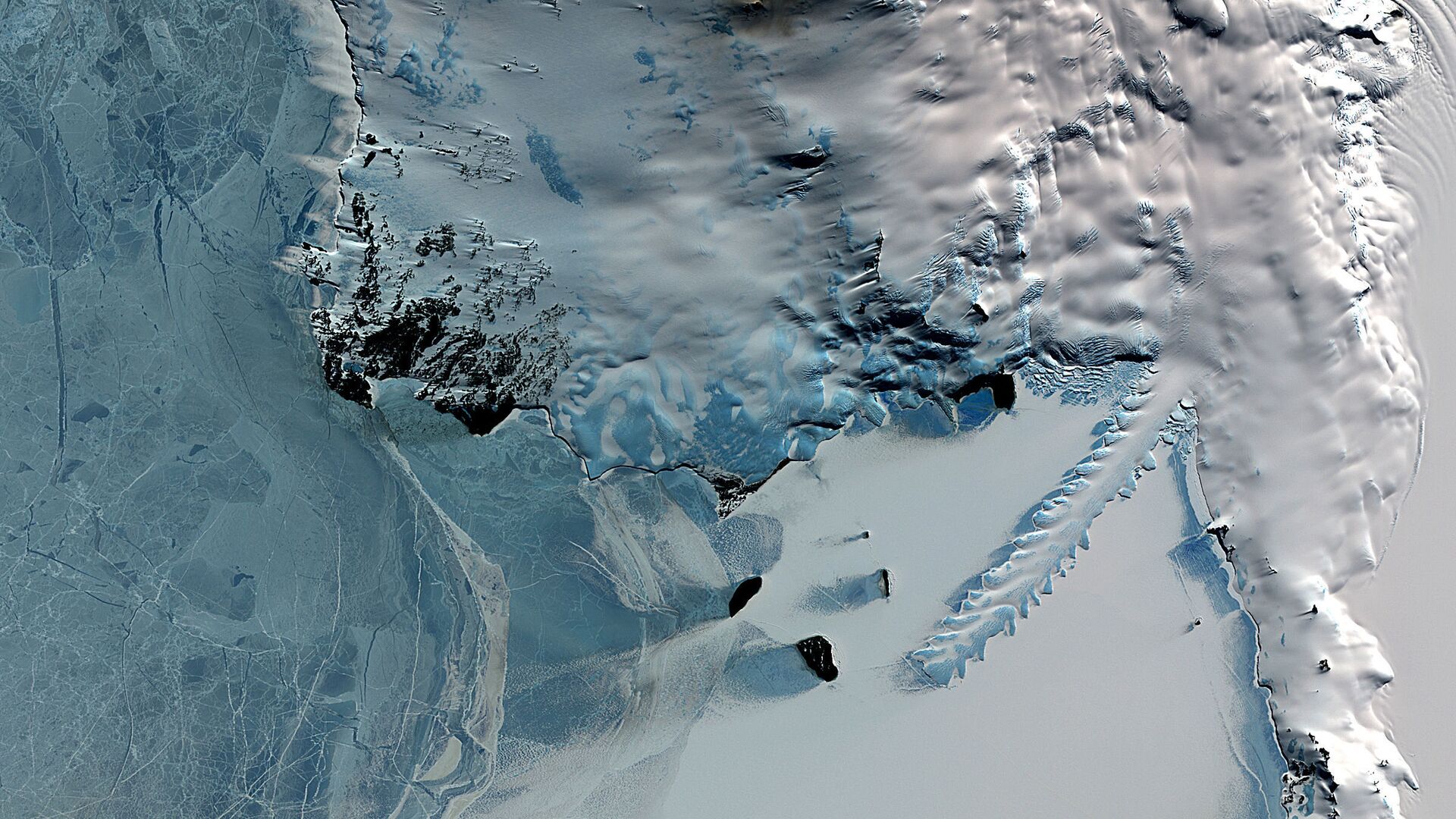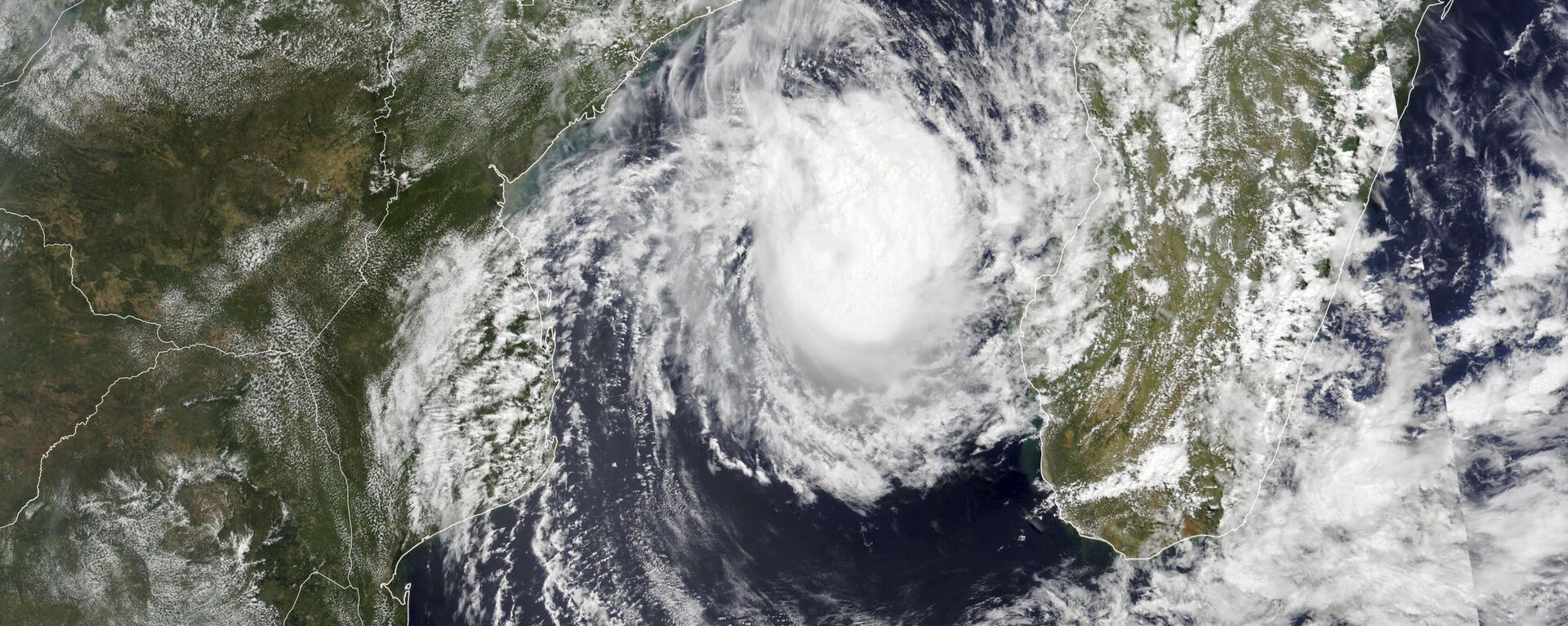https://sputnikglobe.com/20230714/scientists-discover-evidence-of-ancient-glaciers-in-south-africa-1111865416.html
Scientists Discover Evidence of Ancient Glaciers in South Africa
Scientists Discover Evidence of Ancient Glaciers in South Africa
Sputnik International
Scientists have uncovered evidence that suggests glaciers may have covered South Africa long ago.
2023-07-14T01:40+0000
2023-07-14T01:40+0000
2023-07-14T01:38+0000
beyond politics
south africa
johannesburg
earth
university of oregon
glacier
ice age
science & tech
https://cdn1.img.sputnikglobe.com/img/104688/44/1046884438_0:86:2400:1436_1920x0_80_0_0_06286b158465f3fc2a8c0932e9a9a96f.jpg
Scientists have discovered evidence that glaciers may have been present in South Africa 2.9 billion years ago, indicating there may have been a global glacial period earlier than previously thought.A team of scientists led by University of Johannesburg archaean geologist Axel Hofmann analyzed bed rocks under the world’s largest goldmine near South Africa’s east coast. The layers of rocks, dubbed the Pongola Supergroup, are unique in that they have been barely disturbed since they formed billions of years ago.In order to get a better picture of what conditions the sediment samples were formed in, researchers examined the levels of different types of oxygen isotopes found in specimen at the site. Oxygen isotopes are a type of oxygen that vary in atomic weight based on the number of neutrons in the element’s nucleus.The study found that samples of sandstone and shale from the area exhibited lower levels of oxygen-18 and higher levels of oxygen-17, indicating the rocks formed under cold conditions.This would indicate a gradual climatic cooling of surface environments on Earth and points to glaciers in South Africa billions of years ago. Scientists know of at least two periods in which the Earth completely or nearly froze over, the most recent being 650 million years ago in a period called the Marinoan glaciation. But researchers are still unsure if the Earth was a frozen wasteland at the time, or if it had habitable areas near the equator and other warm spots.If the evidence in South Africa confirms another glacial period, it will be the earliest known glacial period in Earth’s history. But the researchers also pointed to another possibility: continental shift. If South Africa was closer to the Earth’s poles, that could also explain the evidence of glaciers."Either possibility is scientifically interesting," says Hofmann.
https://sputnikglobe.com/20230711/scientists-say-canadian-lake-marks-earths-anthropocene-epoch-1111822261.html
south africa
johannesburg
earth
Sputnik International
feedback@sputniknews.com
+74956456601
MIA „Rossiya Segodnya“
2023
News
en_EN
Sputnik International
feedback@sputniknews.com
+74956456601
MIA „Rossiya Segodnya“
Sputnik International
feedback@sputniknews.com
+74956456601
MIA „Rossiya Segodnya“
old ice age, glacier period, frozen planet
old ice age, glacier period, frozen planet
Scientists Discover Evidence of Ancient Glaciers in South Africa
Scientists already believe the Earth was completely or mostly covered in ice 650 million years ago. Now, they have found evidence there may have been a much earlier ice age, roughly 2.9 billion years ago.
Scientists have discovered evidence that glaciers may have been present in South Africa 2.9 billion years ago, indicating there may have been a global glacial period earlier than previously thought.
A team of scientists led by University of Johannesburg archaean geologist Axel Hofmann analyzed bed rocks under the world’s largest goldmine near South Africa’s east coast. The layers of rocks, dubbed the Pongola Supergroup, are unique in that they have been barely disturbed since they formed billions of years ago.
"This is one of the few areas which remain fairly intact and unchanged from the early Earth," University of Oregon geologist Ilya Bindeman explained.
In order to get a better picture of what conditions the sediment samples were formed in, researchers examined the levels of different types of oxygen isotopes found in specimen at the site. Oxygen isotopes are a type of oxygen that vary in atomic weight based on the number of neutrons in the element’s nucleus.
The study found that samples of sandstone and shale from the area exhibited lower levels of oxygen-18 and higher levels of oxygen-17, indicating the rocks formed under cold conditions.
"This means ice," Bindeman explained. "Couple that geochemical evidence with the moraine evidence, and it means glaciers – the oldest glaciers yet found on Earth.
This would indicate a gradual climatic cooling of surface environments on Earth and points to glaciers in South Africa billions of years ago. Scientists know of at least two periods in which the Earth completely or nearly froze over, the most recent being 650 million years ago in a period called the Marinoan glaciation. But researchers are still unsure if the Earth was a frozen wasteland at the time, or if it had habitable areas near the equator and other warm spots.
If the evidence in South Africa confirms another glacial period, it will be the earliest known glacial period in Earth’s history. But the researchers also pointed to another possibility: continental shift. If South Africa was closer to the Earth’s poles, that could also explain the evidence of glaciers.
"Either possibility is scientifically interesting," says Hofmann.



